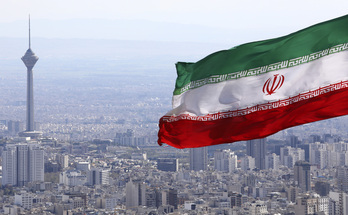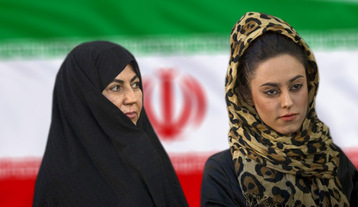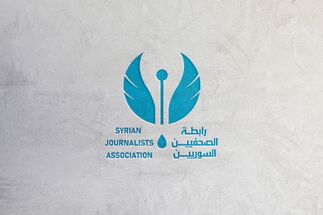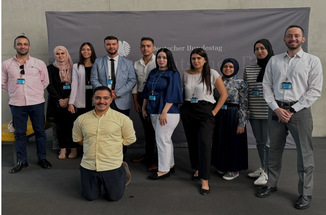-
and Immigration: Navigating Government Obstacles in Search of New Opportunities

As economic, social, and political pressures intensify in Iran, immigration has become a widespread response across all segments of society. From skilled workers to entrepreneurs, many Iranians are exploring ways to leave the country in search of stability and opportunities elsewhere. A significant part of this trend involves the youth, with many young Iranians choosing education as a pathway for immigration. In contrast, Iranian authorities are increasingly implementing strict measures to curb this immigration, targeting the very institutions that assist students in studying abroad.
### The Rising Trend of Educational Immigration
Educational immigration has become a preferred option for young Iranians seeking opportunities abroad. Faced with limited job prospects, economic instability, and political restrictions, many young people view foreign universities as gateways to a brighter future. However, Iranian officials have responded with policies designed to halt the exodus of young people leaving the country. These measures include rising costs for obtaining academic degrees, frequent cancellations of English proficiency exams, currency restrictions, and crackdowns on agencies that facilitate study abroad programs.
Recently, local media reported that the Iranian judiciary has begun actively targeting institutions that assist students in studying abroad. According to Valiollah Mahboubi, Tehran's Deputy Prosecutor General, institutions that do not operate under the direct supervision of the Ministry of Science or the Ministry of Health are deemed "unlicensed." This classification allows authorities to shut down these institutions, block their websites, and prevent them from continuing their services. Mahboubi claims this is part of a campaign "to protect public rights and prevent crime," while the judiciary justifies these actions by accusing unlicensed institutions of exploiting students' desires to emigrate for financial gain and violating citizens' rights.
### Systematic Obstacles for Aspiring Students
Many of these institutions are private agencies that facilitate sending students abroad, capitalizing on the growing demand among young Iranians for overseas education. With stringent regulations and financial burdens imposed on them, students often find themselves resorting to these private entities despite the associated costs and risks. Authorities allege that such agencies exploit vulnerable students and families for substantial profits, yet the root of the issue—the factors driving this trend of immigration—remains unaddressed.
In early October, the Tasnim News Agency, affiliated with the Revolutionary Guard, reported that licenses for 60 student recruitment agencies had been revoked over the past three years, leaving only 120 government-approved agencies operating. These organizations are subject to a task force comprised of representatives from multiple ministries, including Science, Health, Foreign Affairs, Media, Justice, and Islamic Guidance, with all applications for operating licenses scrutinized. Any agency operating without the approval of this group is considered illegal.
### Religious and Ideological Requirements for Foreign Students
Students seeking to study abroad through government-approved channels must meet strict ideological requirements. According to Iran's laws on sending students abroad, only those who demonstrate loyalty to the Supreme Leader and the Islamic Republic are eligible for legal support. Additionally, female students holding bachelor's degrees or higher are only permitted to study abroad if they are married and accompanied by their husbands.
Due to these restrictions, many students opt to apply privately or independently. However, by circumventing government channels, these students and the universities they attend are classified as "unlicensed." As a result, the Iranian Ministry of Science often does not recognize degrees obtained from these foreign institutions, making it challenging for these graduates to return and work in Iran with foreign qualifications.
### Financial and Logistical Obstacles
In recent years, Iranian authorities have heightened financial barriers to deter student immigration. According to the latest guidelines from the Ministry of Science, graduates must pay substantial fees for the "issuance" of their degrees, which the government retains to ensure compliance with post-graduation requirements. For instance, bachelor's degree holders are required to pay 40 million tomans annually for degree issuance, while master's graduates face an annual fee of 50 million tomans. Costs are significantly higher in medical fields, reaching up to 120 million tomans annually for dentistry, translating to a minimum of 500 million tomans for a complete medical program.
Additionally, the repeated cancellations of the IELTS exam—an English proficiency test required by many foreign universities—have compounded the burdens on aspiring immigrants. This cancellation forces students to incur additional travel expenses to neighboring countries like Turkey to take the exam.
### Official Discourse vs. Reality of Youth Immigration
Despite these measures, authorities have been reluctant to acknowledge the root causes driving young Iranians abroad. Supreme Leader Ali Khamenei has publicly criticized those who leave the country after completing their education, accusing them of serving foreign powers. He claims that these individuals are "nurtured and developed in Iran, but when they reach their peak, they leave and provide their talents' benefits to others." However, his comments ignore the overarching challenges within Iran that push young people to seek opportunities elsewhere.
According to the Iranian Migration Observatory, economic instability, political repression, social discontent, and a job crisis are significant factors propelling immigration trends. Rather than addressing these underlying issues
By Saeed Abadi
Tags
You May Also Like
Popular Posts
Caricature
Syrians' concerns now
- December 10, 2024
Syrians' concerns now #Syria
#Bashar_al-Assad
#Liberation_of_Syria
#Syrians
#Future_of_Syria
#Levant_News

opinion
Report
ads
Newsletter
Subscribe to our mailing list to get the new updates!




















